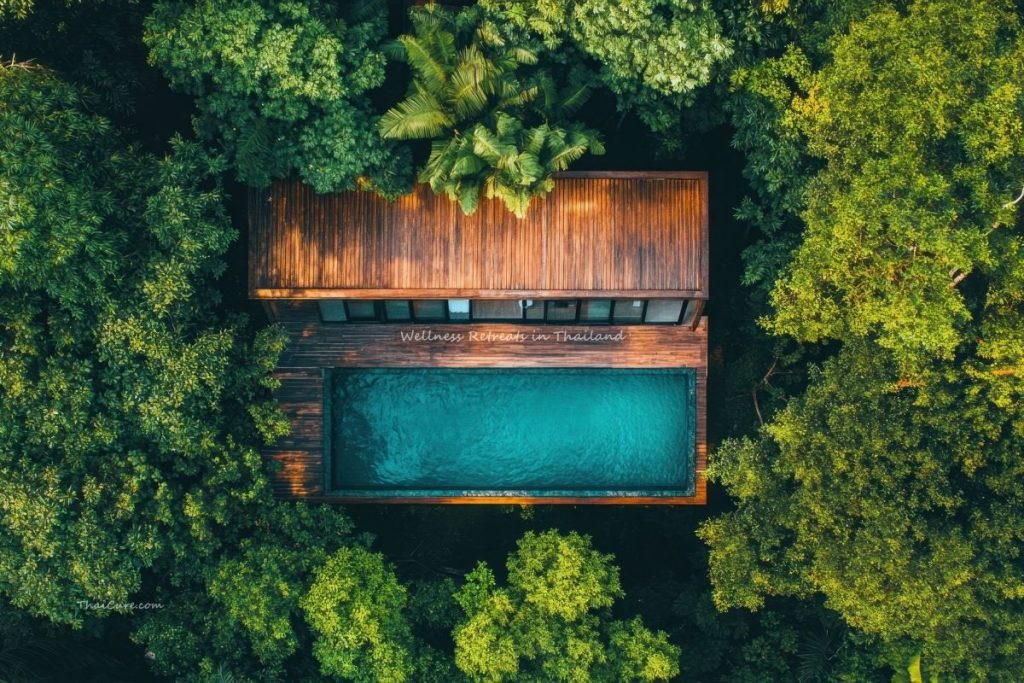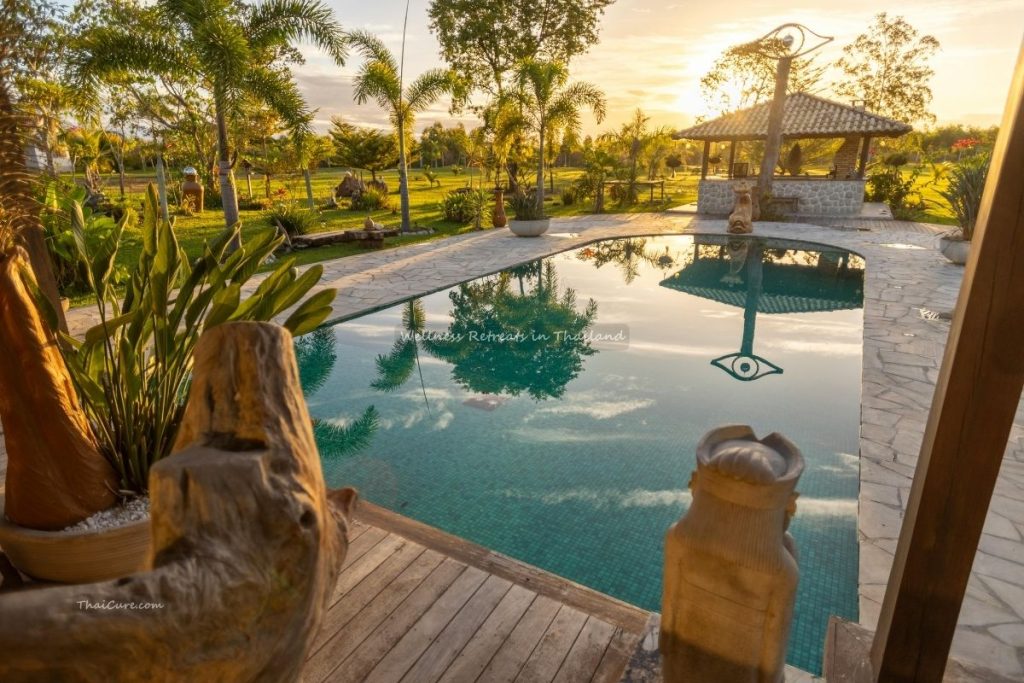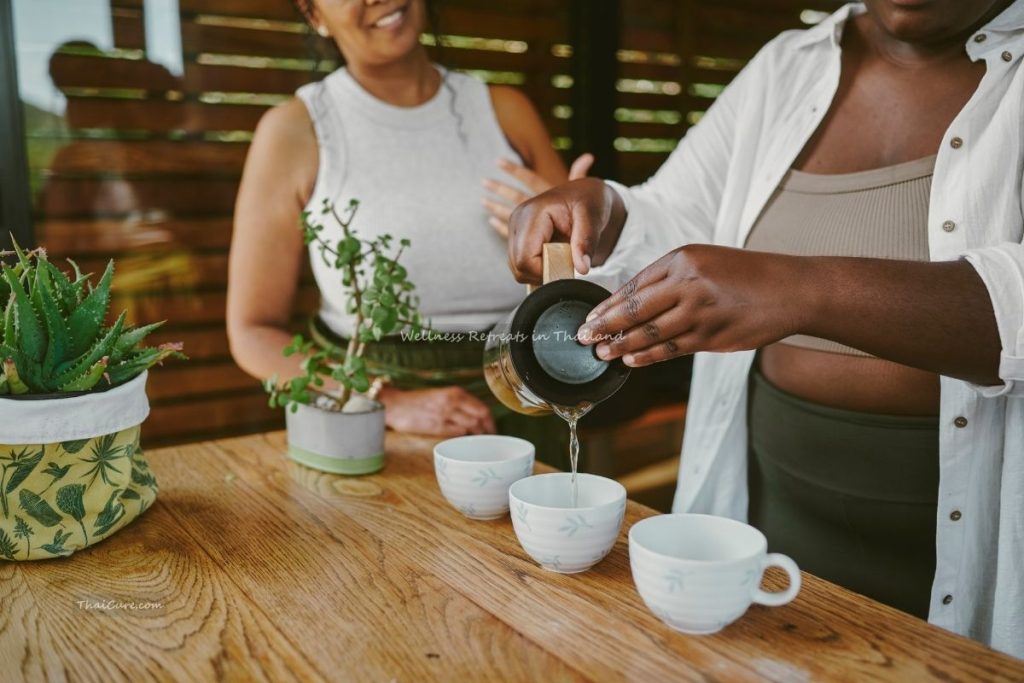- Introduction: Why Thailand Leads the Wellness Wave
- What Defines Wellness Retreats in Thailand
- Benefits You Can Expect
- Types of Retreats
- Where to Go: Destinations & Vibes
- How to Choose the Right Program
- What a Typical Day Looks Like
- Practical Planning Tips
- Spotlights: Notable Centers & Styles
- Sample Itineraries
- Budgeting & Value
- Conclusion: Choose with Intention
- FAQs (Short & Practical)
Introduction: Why Thailand Leads the Wellness Wave
If you’ve been dreaming about pressing pause, breathing deeper, and returning home reset, wellness retreats in Thailand are where many travelers start—and for good reason. Thailand blends nature, hospitality, and healing traditions into an experience that feels both luxurious and grounded. From sunrise meditation to Thai herbal steams, you’ll find programs that honor local wisdom while embracing global best practices.
In this guide, we’ll unpack what wellness retreats in Thailand actually include, how to compare options, and where to go for specific goals—be that gentle rest, movement, or a focused detox retreat Thailand program. You’ll learn the differences between yoga- and meditation-led stays, spa-centric escapes, and integrative programs that weave in nutrition, fitness, and mindfulness coaching. We’ll also talk budgets and timelines, because whether you’re booking a quick 3-day reset or a deeper 14-day transformation, the right fit matters.

Culturally, Thailand’s wellness approach is shaped by Buddhist mindfulness, village herbal knowledge, and the country’s long spa and Thai massage heritage. Expect warmth, care, and attention to detail—served with a smile and a pot of lemongrass tea. Let’s help you choose with clarity and confidence.
What Defines Wellness Retreats in Thailand
At their heart, wellness retreats in Thailand combine restorative practices, conscious nutrition, and tranquil environments. Most programs center around three pillars:
- Body: Daily movement—often yoga, functional training, or low-impact cardio—plus therapies like Thai massage and hydrotherapy.
- Mind: Guided meditation, breathwork, journaling, and workshops that encourage mindfulness and stress release.
- Nourishment: Balanced menus that highlight whole foods and herbs. Many kitchens can accommodate vegetarian, vegan, or gluten-free diets and offer gentle cleansing menus.
You’ll see common program labels that help you filter by intent:
- Yoga retreat Thailand: Multi-level classes, workshops on alignment, and restorative sessions.
- Meditation retreat Thailand: Silent mornings, dharma talks, and techniques from breath focus to loving-kindness.
- Spa retreat Thailand: More treatment-led days—massages, body scrubs, herbal compresses, and thermal circuits.
- Mindfulness retreat: Skills for presence, sleep, and stress management.
- Thai massage retreat: Learn techniques or simply receive therapeutic sessions across your stay.
Many centers add Thai elements—Thai herbal therapy, steam huts infused with local botanicals, and gentle cultural etiquette that emphasizes respect (wai greeting), modest dress in sacred spaces, and calm communication. Altogether, it’s a well-rounded, culturally respectful ecosystem designed to help you reset.
Benefits You Can Expect
People choose wellness retreats in Thailand for measurable change and a compassionate reset. Benefits usually fall into three layers:
👉 “Curious how herbal compresses work? Read our guide on Thai Massage Benefits: Thai Wellness, Herbs & Spa.”
Physical: Improved mobility, better sleep, and digestive ease. Programs that include targeted cleansing can reduce bloating, tame sugar cravings, and rekindle appetite for whole foods. If you’re focused on targeted cleansing, a structured detox retreat Thailand can deliver a clearer protocol with medical checks, herbal support, and refeeding guidance.

Mental/Emotional: A calmer nervous system, practical tools for stress, and a more consistent mindfulness habit. Workshops on breathwork and journaling help translate retreat insights into daily life.
Spiritual/Relational: Some guests report feeling reconnected—to nature, to community, and to themselves. Whether through temple visits, forest walks, or quiet moments, retreats encourage a healthier relationship with your body and mind.
Supporting modalities you’ll often see: holistic healing Thailand approaches (herbs, compresses, energy balancing), sound baths, and gentle movement like qigong. The goal isn’t instant perfection; it’s momentum and skills you can sustain.
Types of Retreats
Detox & Cleanse (including detox retreat Thailand)
If you want a clean slate, this is the most structured path. A detox retreat Thailand might include colon hydrotherapy, infrared sauna, herbal tonics, and a graduated plan: pre-cleanse, fasting/juice phase, and careful refeeding. Daily checks help you adjust, and workshops explain what’s happening in your body. For many, the value is clarity: you don’t have to guess—the framework guides you. You’ll also find softer approaches (broth-based, alkaline menus) if full fasting isn’t your style. Another reason to choose a detox retreat Thailand: clear guardrails if you’ve been feeling sluggish, stressed, or stuck in ultra-processed routines.
Yoga & Meditation
A yoga retreat Thailand blends vinyasa, yin, and restorative sessions, with levels to suit beginners through advanced practitioners. Pair that with a meditation retreat Thailand, and you get silent mornings, breath training, and dharma-informed talks that improve focus, compassion, and resilience.
Spa-Led & Relaxation
A spa retreat Thailand prioritizes treatments—full-body scrubs, aromatherapy, and nurturing Thai massage—with lighter movement. Perfect if your body needs soothing more than sweat.
👉 “Looking for real results? See How Thai massage enhances health and wellness.”
Lifestyle & Weight Management
Expect coaching on movement, sleep hygiene, and nutrition fundamentals. Programs may incorporate mindful eating workshops, cooking demos, and low-impact training.
Digital Detox & Mindfulness
If your brain feels “always on,” a digital detox Thailand plan enforces screen-light days, phone-free mealtimes, and nature time. Pair with mindfulness coaching and you’ll leave with screen boundaries that actually stick.
Women’s Wellness, Men’s Health, and Specialized Tracks

Some centers offer hormone-supportive menus, pelvic floor or strength training, and intimate group sizes for deeper sharing. You’ll also see Ayurveda programs and integrative tracks with lab work where appropriate (at more medical-leaning centers).
Luxury vs. Affordable
A luxury wellness retreat buys privacy, ocean-view suites, and comprehensive diagnostics. An affordable wellness retreat might offer shared rooms, simpler menus, and community-style classes—still restorative, just pared down. Many guests start with a mid-range stay and “level up” once they know what they value most.
Where to Go: Destinations & Vibes
Koh Samui — Nature-Rich & Transformative
“Koh Samui wellness retreat” searches are popular for a reason: jungle-quiet hillsides, swimmable bays, and respected centers. You’ll find integrative programs, from gentle yoga to a focused detox retreat Thailand experience, often with ocean breezes and coconut groves as your backdrop.
Phuket — Beach Luxury & Fitness Variety
A Phuket wellness retreat typically mixes upscale spas, strong fitness offerings, and easy flight access. Expect polished facilities, beach walks at sunrise, and menus that cater to both indulgence and restraint.
Chiang Mai — Culture, Forests & Meditation

For those drawn to temple architecture and cooler air, a Chiang Mai meditation retreat offers forest hermitages, mindfulness instruction, and day trips to waterfalls. Creative cafés and night markets add gentle urban texture without the rush.
Koh Phangan — Yoga Schools & Community
Known for its yoga scene, a Koh Phangan yoga retreat often means multiple classes per day, community brunches, and a barefoot-friendly pace. Choose between beachfront bungalows and hillside hideaways.
Bangkok & Hua Hin — Urban Wellness, Easy Weekenders
Prefer a city base with world-class treatments? Bangkok has wellness hotels and integrative clinics. Hua Hin, a few hours away, adds beach air with polished spas—great if you want a shorter “test run” before committing to a longer stay.

Across all these, wellness retreats in Thailand tend to sit close to nature. Whether that’s the Andaman Sea or a fern-lined mountain trail, your setting is part of the therapy.
How to Choose the Right Program
1) Clarify your goal. Recovery from burnout? Gut reset? Sleep? Strength? When you know your “why,” comparing wellness retreats in Thailand gets far easier.
2) Match program type to outcome. If digestion and sugar cravings are front-of-mind, a detox retreat Thailand (with a clear pre-cleanse and refeed) may beat a general spa week. If mental clarity is your aim, lean into meditation-forward formats.
3) Decide on duration. A 3-day retreat Thailand helps you test the waters. 7-day retreat Thailand programs create enough repetition for new habits. If you’re making a big life pivot, 10–14 days give your body time to integrate.
4) Choose your environment. Ocean, jungle, or city access? Solo peace or light community? Private villa or shared room? A luxury wellness retreat might be worth it if privacy and diagnostics matter; otherwise, affordable wellness retreat options can still deliver deep rest.
5) Scan reviews and credentials. Look for consistent praise of staff care, food quality, and post-retreat support. You want clear policies, transparent packages, and a sample daily schedule. Shortlisted best wellness retreats in Thailand usually publish their approach up-front.
6) Check inclusions. Transfers, lab work (if any), treatment quotas, classes, and follow-up coaching. Compare like-for-like so pricing feels fair.
7) Consider seasonality. If heat or rain affect your energy, plan around it (see planning tips below). Some centers run limited programs in low season; book early for peak months.
Make a simple grid with columns for location, program focus, duration, inclusions, and cost. Two contenders usually emerge quickly.
What a Typical Day Looks Like
While no two centers are identical, many wellness retreats in Thailand follow a comfortable rhythm:
- Early morning: Tea, breathwork, and sunrise yoga or meditation.
- Breakfast: Fresh fruit, local rice porridge, or smoothie bowls; cleansing menus may offer broths or pressed juices.
- Late morning: Workshops—posture clinics, mindful eating, stress physiology—or a signature Thai massage.
- Lunch: Balanced whole-food dishes; in a detox retreat Thailand, you may have light soups or veggie juices.
- Afternoon: Spa time (herbal compress, body scrub), nature walks, or journaling.
- Evening: Restorative yoga, sound bath, or group sharing; early to bed.
Expect optional add-ons like private coaching, mobility assessments, or personalized herbal blends. The pace is intentional—stimulating but not rushed—so you can absorb, rest, and reset.
Practical Planning Tips
Best time to visit. Most travelers enjoy cooler, drier months (roughly Nov–Feb), but there’s beauty year-round. Shoulder seasons can mean quieter facilities and better rates—handy for an affordable wellness retreat approach.
Packing smart. Think breathable layers, a light shawl for temple visits, swimwear, sandals with grip, a refillable bottle, and a small daypack. If you’re considering a detox retreat Thailand, bring electrolyte powder, a soft toothbrush, and a notebook for tracking energy and mood.
Money & connectivity. Cards are widely accepted in resort areas, but carry some cash for markets and island taxis. Many centers encourage digital boundaries; if you must work, set clear times and keep devices out of the dining space—your future self will thank you.
Etiquette & care. Dress modestly in sacred places, remove shoes when asked, and greet with a wai. Inform staff of allergies, injuries, or medications at check-in. If you’re new to heat, pace your sun time and hydrate more than you think you need.
Paperwork. Check visa requirements and travel insurance coverage for wellness activities. Keep copies of bookings and emergency contacts in your daypack.
With a little prep, wellness retreats in Thailand feel effortless the moment you arrive.
Spotlights: Notable Centers & Styles
Thailand’s scene is rich and varied. Here are four styles you’ll encounter—use them as inspiration while shortlisting:
Integrative Transformation (Koh Samui). Programs combine diagnostics, movement, treatments, and coaching; island tranquility is part of the medicine. It’s a strong setting for a guided detox retreat Thailand if you want clear structure.
Medical-leaning Urban Wellness (Bangkok). City-based centers may offer lab testing, physiotherapy, and targeted sleep or metabolic tracks—ideal if you want access to specialists and big-city amenities.
Luxury Heritage Spa (Gulf Coast/Hua Hin). Beachside sanctuaries pair award-winning spa menus with refined cuisine and deep sleep environments. Perfect for couples or milestone trips.
Community-Forward Yoga (Koh Phangan). Class-rich schedules, teacher trainings, and plenty of restorative options. Great for solo travelers seeking connection in a barefoot-friendly setting.
Use these archetypes to match your vibe before you dig into exact properties.
Sample Itineraries
A) 3-Day Refresh (Weekend Reset)
- Goal: Shake off stress, sleep better, and reconnect with your body.
- Flow: Arrival tea + evening yin; day-two sunrise meditation, yoga, and one signature treatment; day-three nature walk, journaling, and a take-home breathwork plan.
- Why it works: It’s enough to feel the shift without holiday-level planning. An easy 3-day retreat Thailand option.
B) 7-Day Balance (Habit Builder)
- Goal: Re-pattern meals, movement, and bedtime.
- Flow: Alternating strength and mobility mornings, mindful eating workshops, two spa days, and a midweek digital detox. Optional private coaching fine-tunes form and food.
- Why it works: Repetition creates confidence. A classic 7-day retreat Thailand structure.
C) 10–14 Day Deep Reset (Transformative)
- Goal: Comprehensive change—gut health, stress, and energy.
- Flow: Structured pre-cleanse menu, a measured fasting phase (if chosen), daily checks, and gentle refeeding with cooking lessons. Add sleep coaching and restorative evening practices.
- Why it works: You give your system time to adapt. If your goal is metabolic clarity, this is when a detox retreat Thailand shines.
Tip: Build a re-entry plan (bedtime, movement minimums, and two easy meals you’ll actually cook). Retreats plant seeds; routines at home water them.
Budgeting & Value
How much do wellness retreats in Thailand cost? Prices vary by season, room type, and inclusions. What matters more than the exact number is value alignment:
- Inclusions: Are key treatments, group classes, and meals covered—or will you pay à la carte?
- Expertise: Are teachers and therapists well-trained? Do programs publish their methods?
- Aftercare: Do you get post-retreat follow-ups, templates, or coaching offers?
- Environment: View, noise, and access to nature count more than you think.
If funds are tight, book shoulder-season dates, choose shared rooms, and skip premium add-ons. An affordable wellness retreat can still deliver deep rest if the program design is sound and the kitchen is thoughtful.
Conclusion: Choose with Intention
You’ve seen the landscape: ocean sanctuaries, forest hermitages, urban clinics, and everything between. With a clear goal and a simple comparison grid, choosing among wellness retreats in Thailand becomes exciting rather than overwhelming. If you crave a reset with firm guardrails, a structured detox retreat Thailand can clarify your path. If you’re seeking steadiness and continuity, a yoga-, meditation-, or spa-led program might feel just right.
Most of all, remember that retreats aren’t escapism—they’re training wheels for a life you actually enjoy living. Start small or go deep, but start. Thailand’s warmth, nature, and healing traditions are ready to meet you where you are and carry you a few meaningful steps forward.
FAQs (Short & Practical)
**Is a *detox retreat Thailand* safe for beginners?**
Reputable centers screen for contraindications, ease you in with a pre-cleanse, and monitor refeeding. If you have medical conditions, consult a clinician first.
**Do I need experience to join a **yoga retreat Thailand?
No. Many schedules offer beginner and mixed-level classes. Tell teachers your level and any injuries.
What’s the difference between a spa week and a holistic program?
A spa retreat Thailand is treatment-led and relaxation-heavy. Holistic tracks add daily movement, workshops, and nutrition frameworks.
Is solo travel okay?
Yes. Many guests come solo. Community-forward centers (especially on Koh Phangan) make it easy to meet people while keeping your own rhythm.
How soon will I feel the benefits?
Often by day two or three—better sleep, lighter mood, clearer skin. Deeper shifts (habits, cravings, resilience) keep unfolding at home.










